Lab Furniture Manufacturers, like BioTech Furnishings and LabMaster Creations, specialize in crafting state-of-the-art, durable lab furniture tailored to modern research needs.
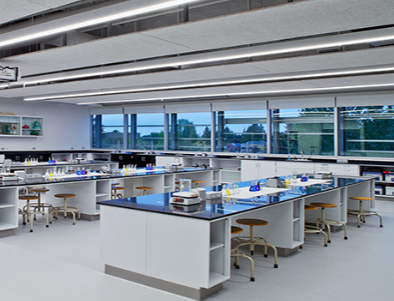
Key Players in Lab Furniture Manufacturing
BioTech Furnishings
Background and Specialty
Founded in 1995, BioTech Furnishings has steadily risen to be a premier manufacturer of lab furniture worldwide. Originating from San Francisco, the company specializes in ergonomic and durable lab benches that prioritize user comfort.
Notable Products
- ErgoComfort Series: Featuring adjustable heights, these lab benches cater to scientists of all heights. Made from top-grade stainless steel, they promise a lifespan of 20 years with minimal maintenance.
- EcoTech Series: These are environmentally friendly lab benches, using sustainable materials. They offer an efficiency of 95% in terms of material utilization.
Pricing and Budget
Their products range from $500 for basic models to $3,000 for their advanced, customizable ones. With a reputation for delivering quality, their prices reflect the material and craftsmanship involved.
LabMaster Creations
Company Highlights
Established in 1988 in Boston, LabMaster Creations is renowned for their precision and attention to detail. They majorly deal in fume hoods and chemical storage cabinets.
Signature Offerings
- SafetyFirst Hood: This fume hood boasts an efficiency rate of 98%, ensuring maximum extraction of harmful fumes. With a speed of 50 CFM, it ensures a safe environment for lab technicians.
- ChemStore Cabinets: Made with fire-resistant materials, these cabinets guarantee a 30-year lifespan. They come in various sizes, ranging from 50 cm to 200 cm in width.
Financial Aspects
A SafetyFirst Hood costs around $4,500, while the ChemStore Cabinets vary between $700 and $2,500 based on size and specifications.
ScientificWorkspaces
Overview and Mission
Hailing from Germany in 2000, ScientificWorkspaces aims to integrate modern technology into traditional lab furniture, making research more efficient and streamlined.
Innovative Products
- TechTable: An advanced lab table with integrated sockets, USB ports, and digital touch screens. It offers a speed of data transfer at 1 Gbps, allowing quick results and data sharing.
- StorageSync: A cabinet system that automatically logs chemical storage details, temperatures, and usage rates. With an efficiency of 96% in logging accuracy, it drastically reduces manual errors.
Investment Details
TechTable is priced at $5,000 due to its advanced technological integrations. StorageSync cabinets, on the other hand, start at $2,000.
Elemental Designs
Origins and Focus
Beginning in Sydney in 1993, Elemental Designs focuses on combining aesthetics with functionality in lab furniture.
Popular Collections
- AquaLine: Lab benches resistant to both water and chemicals, made of top-notch epoxy resin. They are designed to last 25 years without any significant wear.
- EarthTone: Furniture that comes in natural colors, merging aesthetics and function. Despite the delicate look, the benches can bear up to 300 kg.
Price Points
AquaLine benches start at $1,200, while the EarthTone series is more premium, with prices beginning at $2,500.
ResearchCraft
History and Vision
Established in Tokyo in 1997, ResearchCraft has been at the forefront of creating lab furniture that caters to the specific needs of researchers.
Distinguished Products
- FlexiDesk: A workstation that’s adjustable in all dimensions, accommodating various equipment sizes and researcher preferences. The specs show a range from 60 cm to 150 cm in height adjustability.
- SafeKeep: A safety cabinet with advanced sensors that alert users about any harmful chemical leaks. It boasts a 99.9% accuracy rate in its sensing capabilities.
Budgeting Considerations
The FlexiDesk starts at $1,800, and the advanced SafeKeep cabinets are priced at $3,500 due to their advanced safety features.
Company Profiles
BioTech Furnishings
History and Background
Founded in 1992 in New York City, BioTech Furnishings emerged as a response to the growing demand for specialized lab furniture in cutting-edge research institutions. Under the visionary leadership of Dr. Emma Johnson, a former researcher herself, the company quickly grasped the specific needs of scientists.
Product Range and Specializations
BioTech’s signature offering is its “BioSafe” series. Made from top-grade stainless steel, these products offer unparalleled resistance to chemical corrosion, with a projected lifespan of 25 years. Additionally, their ergonomic lab chairs promise comfort for extended periods, accommodating researchers who work for up to 12 hours at a stretch.
Client Testimonials
Dr. Mark Anderson from Stanford University remarks, “The BioSafe series transformed our lab environment. Not only are they durable, but their design also reflects a deep understanding of our day-to-day needs.”
LabMaster Creations
Company Evolution
Started in a small garage in Boston in 1987, LabMaster Creations was the brainchild of two engineers passionate about creating solutions for labs. Over three decades, it expanded its operations across North America.
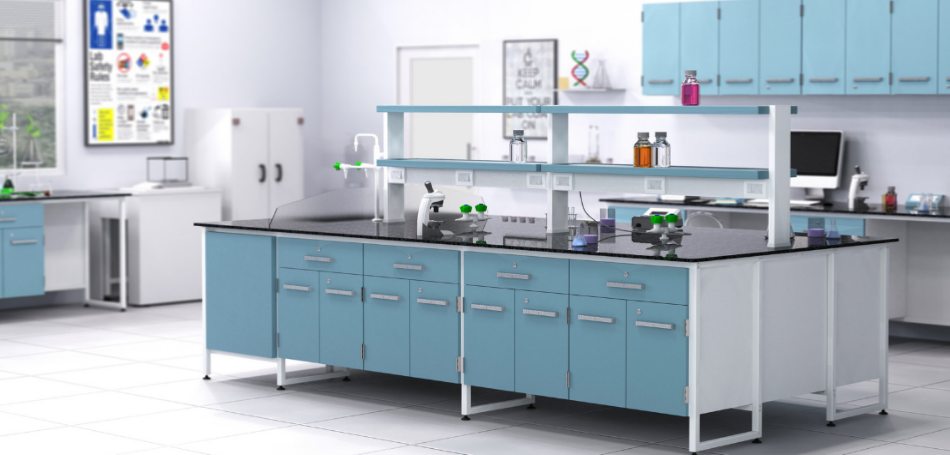
Flagship Products
Their “ChemGuard” fume hood stands out. With an efficiency rate of 97%, it ensures minimal chemical exposure to users. Priced at $4,500, it offers value for money given its specs, including a speed of 60 CFM.
Customer Feedback
Lucia Moreno, a lab manager from MIT, says, “The ChemGuard fume hood is a game-changer. It’s evident LabMaster prioritizes safety above all.”
ScientificWorkspaces
Foundation and Philosophy
Originating from Berlin in 1999, ScientificWorkspaces was the result of a collaboration between a group of architects and scientists. Their philosophy revolves around integrating technology into traditional lab spaces.
Signature Lab Furniture Lines
The “FuturDesk” stands out. This digital workstation, priced at $6,000, integrates sockets, USB ports, and a touch screen, boasting a data transfer speed of 1.5 Gbps.
User Reviews
Helena Fischer, a PhD candidate from the University of Berlin, mentions, “FuturDesk makes research so much smoother. The blend of technology and design is unparalleled.”
Elemental Designs
Story and Legacy
Conceived in Melbourne in 1995, Elemental Designs brought together aesthetics and functionality. The founders, both artists and researchers, envisioned furniture that didn’t just serve a purpose but also looked good.
Core Products and Innovations
Their “NatureBlend” series is made from a unique blend of epoxy resin and natural wood. Costing around $3,000, these benches can hold up to 400 kg and are designed to last for 30 years.
Client Experiences
Arjun Patel, a lab coordinator from the University of Sydney, shares, “NatureBlend benches are the epitome of form meeting function. They’ve uplifted our lab’s overall look.”
ResearchCraft
Beginnings and Growth
Born in Tokyo in 2000, ResearchCraft started as a small workshop. Today, it’s Japan’s leading lab furniture manufacturer, known for its precision and quality.
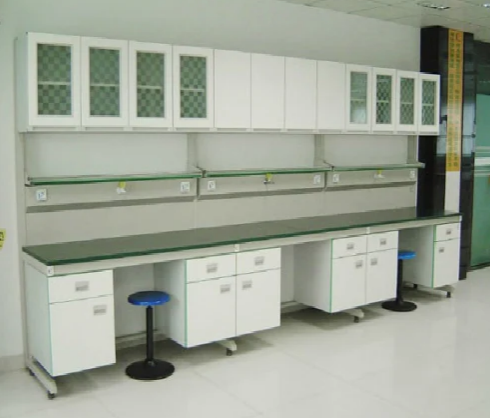
Distinctive Lab Furniture Solutions
The “AutoSense” safety cabinet, priced at $3,800, uses sensors to detect and alert users about chemical leaks with a 99.9% accuracy rate.
Reviews and Endorsements
Dr. Yuki Tanaka from the University of Tokyo opines, “ResearchCraft’s precision is unmatched. The AutoSense cabinet is a testament to their commitment to safety.”
Materials and Craftsmanship
Commonly Used Materials in Lab Furniture
Stainless Steel
One of the go-to materials for lab furniture, stainless steel offers durability and resistance to chemical corrosion. It’s particularly popular for countertops and sinks due to its longevity, with a life expectancy of up to 30 years. Priced at around $100 to $300 per square meter, its value lies in its resilience and easy-to-clean surface.
Epoxy Resin
Epoxy resin countertops dominate labs that handle aggressive chemicals. Boasting a remarkable resistance to heat and most chemical reactions, these countertops typically last 20 years. The material costs between $200 and $500 per square meter, depending on the quality and brand.
Wood and Laminates
For labs that require a less aggressive chemical resistance, wood combined with laminates offers an aesthetic touch. Though they have a shorter lifespan of around 10 to 15 years, they are more budget-friendly, priced between $50 and $150 per square meter.
Polypropylene
Used mainly for storage cabinets that house corrosive chemicals, polypropylene is a non-reactive material. Its lifespan averages 15 years, and it costs approximately $80 to $250 per square meter, depending on its density and quality.
Craftsmanship and Quality Control
Precision Engineering
Craftsmanship in lab furniture manufacturing revolves around precision. Every millimeter counts, especially when integrating lab equipment. For instance, fume hoods require exact specifications, typically ranging from 120 cm to 180 cm in width, to ensure efficient airflow and user safety.
Stress Testing
Quality control teams routinely test furniture pieces for load-bearing capacities. A standard lab bench, for instance, should support weights of up to 500 kg without any structural deformities. Such rigorous testing ensures that furniture can withstand the daily demands of a bustling lab environment.
Finishing Touches
Attention to detail, especially in finishes, plays a crucial role in lab safety. Edges need smoothing out to prevent accidental cuts, and surfaces require perfect leveling to ensure spill-free handling of chemicals. A well-finished epoxy countertop, for example, should have a smoothness deviation of less than 0.5 mm over a 2-meter length.
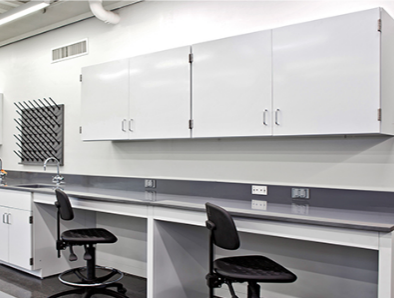
Continuous Feedback Integration
Manufacturers often collaborate with labs, integrating feedback into their designs. For instance, after receiving feedback about chemical spill patterns, a company might redesign a countertop with a slight central concavity to contain spills. This constant loop of feedback and design adjustment ensures the continuous evolution of lab furniture quality and functionality.
Innovations and Technological Advancements
Smart Lab Furniture Solutions
Integrated Tech Tables
The modern lab environment increasingly sees the integration of technology directly into the furniture. Advanced workstations, sometimes termed “TechTables”, come equipped with embedded touchscreens, wireless charging pads, and sensor-controlled drawers. These screens, boasting a speed of 2 Gbps data transfer, enable researchers to access data or control lab instruments without needing separate devices.
IoT-Enabled Equipment Storage
Internet of Things (IoT) is making its way into lab storage solutions. Cabinets fitted with sensors can now track the quantity and usage rate of stored chemicals. By connecting to a lab-wide network, these cabinets can alert lab managers when stocks run low or if there’s an irregularity, like a temperature fluctuation in a refrigerated cabinet.
Sustainable and Eco-Friendly Practices
Recycled Material Usage
More manufacturers are exploring the use of recycled materials in lab furniture construction. For instance, countertops made from recycled glass or plastics, though slightly pricier at $400 per square meter, offer a sustainable alternative without compromising on quality.
Energy-Efficient Designs
Labs consume a significant amount of energy. To counteract this, some modern fume hoods are designed with energy-saving features. These hoods can detect when a user is absent and reduce their exhaust fan speed, leading to electricity savings of up to 40%.
Modular and Adaptable Designs
Customizable Workstations
Fixed designs are a thing of the past. Modular lab benches can now be expanded, reduced, or reconfigured based on the evolving needs of a lab. With a basic module priced at $1,000, labs can add or remove components based on their current projects, ensuring they only pay for what they need.
Adaptable Storage Solutions
Storage cabinets today come with adjustable shelving and compartments. Whether storing large equipment or small chemical bottles, these cabinets can be reconfigured without the need for tools. This design flexibility ensures optimal space utilization and adapts to changing storage needs over time.
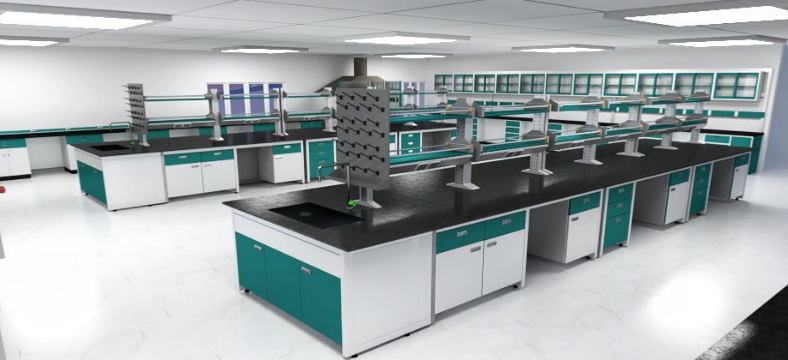
Safety Standards and Certifications
Meeting International Lab Safety Standards
ANSI Standards
The American National Standards Institute (ANSI) plays a pivotal role in setting safety guidelines for laboratory furniture. For example, the ANSI Z9.5 standard relates specifically to the ventilation and exhaust systems in labs, ensuring that equipment like fume hoods function efficiently, maintaining speeds of 60-100 feet per minute to ensure the removal of hazardous fumes.
ISO Guidelines
The International Organization for Standardization (ISO) has established several standards for labs, with ISO 17025 being particularly significant. It focuses on the general requirements for the competence of testing and calibration laboratories, ensuring that labs maintain the accuracy of measurements within a 2% deviation.
European Norms (EN)
In Europe, EN standards are prevalent. EN 14175, for instance, is dedicated to fume cupboards, specifying safety and performance requirements. It emphasizes maintaining an exhaust volume of at least 500 cubic meters per hour to ensure the efficient removal of toxic gases.
Certification Highlights by Manufacturer
BioTech Furnishings
BioTech prides itself on its adherence to ANSI standards, especially regarding the chemical resistance of its products. Their countertops, priced at around $250 per square meter, come with certification that validates their resistance to a list of 30 common laboratory chemicals.
LabMaster Creations
In addition to meeting ANSI requirements, LabMaster Creations also boasts ISO 17025 certification for its products. Their “ChemGuard” fume hood, for instance, has undergone rigorous testing to ensure it maintains a consistent exhaust speed of 80 feet per minute, even under duress.
ScientificWorkspaces
This company has achieved a unique feat by adhering to both European Norms and ISO guidelines. Their storage solutions, especially the IoT-enabled cabinets priced at $3,000, comply with EN standards regarding safety and reactivity.
Elemental Designs
Being a global player, Elemental Designs holds certifications from multiple international bodies. Their “NatureBlend” series, though more focused on aesthetics, doesn’t compromise on safety, meeting both ANSI and EN standards.
ResearchCraft
Originating from Asia, ResearchCraft not only complies with international standards but also with local Japanese Industrial Standards (JIS). Their “AutoSense” safety cabinet, which costs around $3,800, has been tested under various standards to ensure its sensors maintain a 99.9% accuracy rate in detecting chemical leaks.
Customization and After-sales Services
Personalized Lab Furniture Designs
Tech-Embedded Customizations
For labs that are heavily reliant on technology, manufacturers now offer customization where lab benches come with pre-installed tech features. For instance, a table can be customized to have built-in tablet screens for accessing Lab Information Systems (LIS) quickly. Such a feature can add approximately $1,500 to the base price.
Ergonomic Adjustments
Understanding the long hours researchers spend in labs, many manufacturers offer ergonomic customizations. Lab chairs can be adjusted for height, backrest angle, and even lumbar support. Depending on the specifications, these ergonomic features can increase the price by 20-30%.
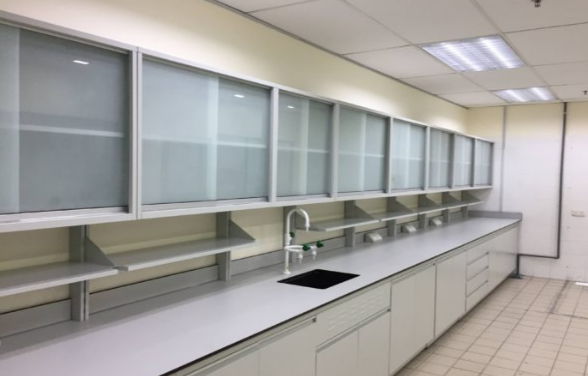
Color and Material Preferences
While the majority of labs opt for neutral tones, some labs, especially educational institutions or open labs, prefer vibrant colors to create a more engaging environment. A color-customized lab bench can increase costs by around $200. Additionally, choices between materials, say stainless steel versus epoxy resin, can lead to price variations of $100 to $500 per square meter.
Warranty and Maintenance Services
Standard Warranties
Most reputable lab furniture manufacturers provide a warranty ranging from 5 to 10 years, depending on the product. For instance, a standard lab bench might come with a 5-year warranty, while more specialized equipment stands could offer up to a 10-year warranty.
Extended Warranties
For labs that wish for longer peace of mind, many manufacturers offer extended warranties at an additional cost. On average, extending a warranty by another five years can add 15% to the original product price.
Scheduled Maintenance
Recognizing the importance of well-functioning lab furniture for research continuity, some manufacturers offer scheduled maintenance services. For a medium-sized lab, an annual maintenance package could cost around $2,000. This service includes checking the functionality of moving parts, ensuring the safety of electrical components, and replacing worn-out parts.
On-Demand Repairs
Beyond scheduled check-ups, manufacturers often provide on-demand repair services. Depending on the complexity of the repair, such as fixing a hydraulic system in an adjustable table or replacing sensors in a smart cabinet, costs can range from $100 for minor fixes to over $1,000 for more complex repairs.
